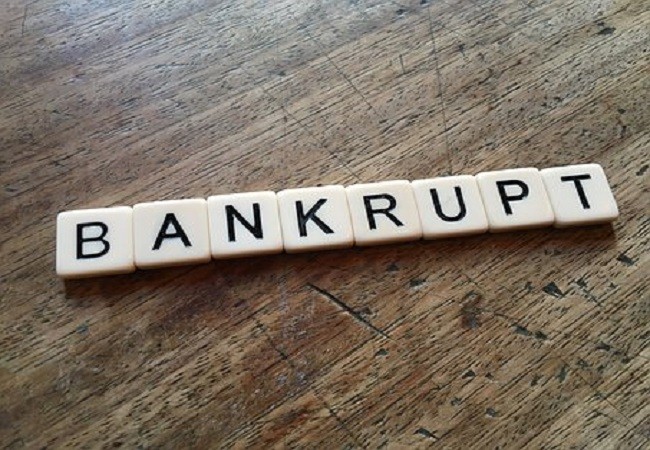UAE Bankruptcy Law

𝐔𝐀𝐄 𝐁𝐚𝐧𝐤𝐫𝐮𝐩𝐭𝐜𝐲 𝐋𝐚𝐰: 𝐑𝐞𝐬𝐩𝐨𝐧𝐬𝐢𝐛𝐢𝐥𝐢𝐭𝐢𝐞𝐬 𝐨𝐟 𝐭𝐡𝐞 𝐁𝐨𝐚𝐫𝐝 𝐌𝐞𝐦𝐛𝐞𝐫𝐬
The UAE Bankruptcy Law is a legal framework that provides a mechanism for individuals and companies to restructure their financial affairs and debts when they are unable to pay their creditors. The law was introduced in December 2016 and became effective in January 2017. This law is applicable to all individuals and companies, whether they are citizens, residents, or non-residents of the UAE.
Key Provisions of the UAE Bankruptcy Law:
1. Financial Restructuring: The law provides a mechanism for financial restructuring that allows individuals and companies to negotiate with their creditors to restructure their debts. The debtor must have the approval of the court to enter into a restructuring plan. The court-appointed expert reviews the debtor's financial situation and makes recommendations to the court on whether the proposed restructuring plan is feasible.
2. Preventive Composition: The law allows companies to apply for a preventive composition before they become insolvent. A preventive composition is an agreement between the debtor and the creditors that outlines the terms of the settlement of the debts. This agreement must be approved by the court.
3. Liquidation: If the financial restructuring is not successful, or if the debtor does not have a viable business to continue operations, liquidation may be ordered by the court. The liquidation process is overseen by a court-appointed liquidator who is responsible for the sale of the debtor's assets and the distribution of the proceeds to the creditors.
4. Protection for Debtors: The law provides protection for the debtor from legal action taken by creditors during the restructuring process. The debtor is also protected from any new legal action initiated by creditors during the period of financial restructuring.
5. Protection for Creditors: The law provides protection for the creditors' interests by ensuring that they receive a fair distribution of the debtor's assets. The court-appointed expert ensures that the creditors are treated equally and fairly in the distribution of assets.
𝐑𝐞𝐬𝐩𝐨𝐧𝐬𝐢𝐛𝐢𝐥𝐢𝐭𝐢𝐞𝐬 𝐨𝐟 𝐭𝐡𝐞 𝐁𝐨𝐚𝐫𝐝 𝐌𝐞𝐦𝐛𝐞𝐫𝐬
The Board of Members of the United Arab Emirates Bankruptcy Law (UAE BL) is responsible for overseeing the implementation of bankruptcy law in the UAE. The UAE BL was enacted in 2016, and it has since undergone various amendments to enhance its effectiveness.
The following are some of the responsibilities of the Board of Members of the UAE BL:
Supervising the bankruptcy process: The Board of Members is responsible for supervising the bankruptcy process in the UAE, ensuring that all proceedings are conducted in accordance with the provisions of the UAE BL.
Appointing trustees: The Board of Members is responsible for appointing trustees to oversee the administration of the bankruptcy estate. The trustees are tasked with managing the assets of the debtor, liquidating assets to pay creditors, and distributing any remaining proceeds to the debtor.
Reviewing bankruptcy plans: The Board of Members is responsible for reviewing and approving bankruptcy plans submitted by debtors. The plans outline the debtor's proposed strategy for repaying creditors and restructuring its business operations.
Enforcing bankruptcy laws: The Board of Members is responsible for enforcing bankruptcy laws in the UAE, ensuring that all parties involved in the bankruptcy process comply with the provisions of the UAE BL.
Protecting the rights of creditors: The Board of Members is responsible for ensuring that the rights of creditors are protected during the bankruptcy process. This includes reviewing creditor claims, overseeing the liquidation of assets, and ensuring that creditors are fairly compensated.
The Board of Members of the UAE BL plays a crucial role in overseeing the bankruptcy process in the UAE. Its responsibilities ensure that all parties involved in the process are treated fairly and that the bankruptcy process is conducted in accordance with the provisions of the UAE BL.
Benefits of the UAE Bankruptcy Law
The UAE Bankruptcy Law provides several benefits to individuals and companies facing financial difficulties. These benefits include:
1. Opportunity to restructure financial affairs: The law allows individuals and companies to restructure their financial affairs and debts.
2. Avoids liquidation: The law provides an opportunity for companies to avoid liquidation and continue operating their business.
3. Protection for both debtor and creditors: The law provides protection for both the debtor and creditors during the restructuring process.
4. Encourages investment: The law provides a stable legal framework that encourages investment in the UAE.
The UAE Bankruptcy Law provides a mechanism for individuals and companies to restructure their financial affairs and debts when they are unable to pay their creditors. The law provides protection for both the debtor and creditors during the restructuring process and encourages investment in the UAE. The law is a significant step towards developing a modern and dynamic financial system in the UAE.
